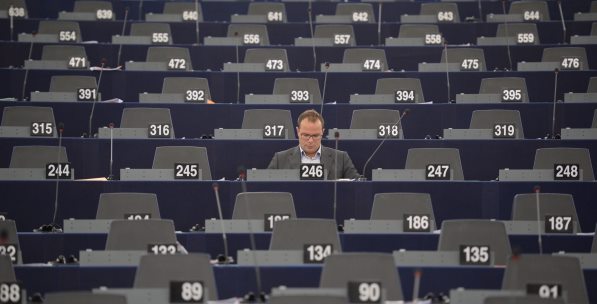In the first days of the Syrian crisis, the American administration, particularly the secretary of state Hillary Clinton, appeared to be actively interested enough to get involved in the crisis. This active interest, however, remained limited to a few meetings Clinton held with “friends of Syria.” The presidential elections in America focused the attention away from the Syrian crisis in 2012. It was during this time that the Ba’ath administration committed its worst massacres. One third of the country’s population was displaced. Millions of people became refugees. Syria reappeared on the United States’ daily agenda only after Assad used chemical weapons on August 21st.
It became clear just how unprepared the Obama administration, which did not have a “broad perspective” in Brzezinski’s words, was to deal with the Syrian issue. First, Syria became an ordinary domestic issue, then the issue moved beyond Syria alone. The discussions shifted from Syria to Russia, from the crisis in the Middle East to U.N Security Council decisions, from the Assad administration to the American administration. A military intervention that would only lead to more bloodshed was never what was needed in the Syrian crisis. On the contrary, what was expected from the United States and other influential countries was political intervention. Had there been a serious and well-planned political intervention in 2011 the crisis would not have become the bloodbath it did.
What is political intervention? The main culprits that turned the Syrian crisis into a bloodbath were the Assad administration as well as Russia and Iran that have given it a blank check of support. The American administration neither discussed the Syrian crisis with Russia in any meaningful way, nor did it made it possible for a discussion to happen with Iran. Russia, since very beginning, exploited this apparent vacuum of power in the global political arena and tried to prove itself as the new power at the cost of Syrian lives. The more massacres the Assad regime committed, the more powerful Russia became. Russia knew very well that no one would want to touch a country in which more than 100,000 people were killed. It was almost as if a second Chechnya strategy was put in place in Syria. Similarly, Iran was also given the opportunity to deepen the crisis in Syria as it wished without any fear of retaliation. The destructive role Iranplayed in the crisis was made possible by not even applying any meaningful pressure to the Maliki administration in Iraq. It was not too long before the Gulf States that did not hesitate to continue their proxy wars with Iran at the cost of the Syrian people joined the equation.
The events of August 21st made any political intervention, let alone military intervention, in Syria impossible. Even if the United States launched a military operation at this point, Assad would not perceive this as a threat. At the end, the reason for the operation will not be the regime under which Assad massacred more than 100,000 people, but that chemical weapons were used to kill a few thousand people. It could be argued that if the global debate over Syria remains as is, any action, let alone weakening the Assad regime, might be perceived by Assad as an encouragement to commit more massacres. As such, there is really only one question: Is this a Syrian crisis or a global political depression?
[Hurriyet Daily News, September 13, 2013]

